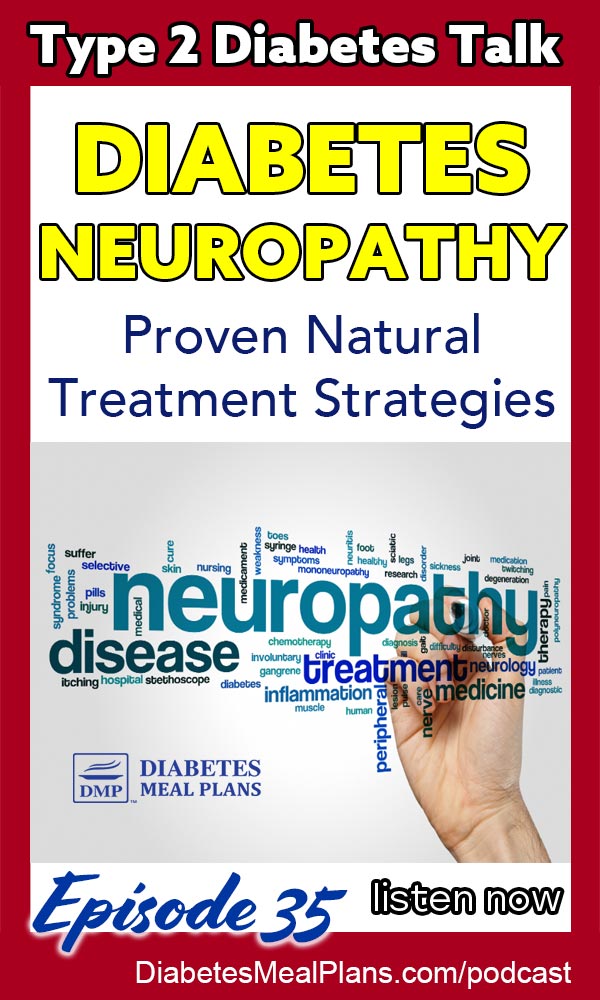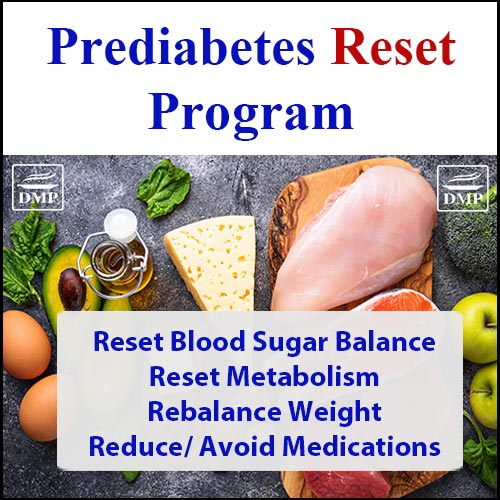Table of Contents[Hide][Show]
In this episode and post, we detail science-backed natural strategies, including six effective nutrients and a variety of lifestyle changes that can significantly alleviate symptoms like pain, tingling, and numbness that accompany diabetic neuropathy.
LISTEN TO THE PODCAST
CHAPTERS
2:01 What is neuropathy
3:48 Primary steps for treatment
5:47 Vitamin B12
7:52 Vitamin D
9:29 Omega-3 Fatty Acids
10:36 Magnesium
13:14 Alpha-Lipoic Acid (ALA)
15:30 Acetyl-L-Carnitine
18:32 Other lifestyle and alternative therapies
21:55 Practical steps to start feeling better today
Support the podcast by leaving a 5-star rating and review on Apple, Spotify or our Website – Thank You!
Science-Backed Natural Treatment for Diabetic Neuropathy
Diabetic neuropathy is a serious and common complication of diabetes, characterized by nerve damage that results from prolonged high blood sugar levels.
If you’re grappling with diabetic neuropathy, you know how debilitating the symptoms can be—pain, tingling, and numbness are all too common.
While managing blood sugar levels is foundational for effective treatment, incorporating certain nutrients and lifestyle changes can also make a significant difference.
Here’s a practical guide to natural treatment strategies that are backed by science.
Optimizing Nutrition for Nerve Health
Proper nutrition is key to managing diabetic neuropathy.
If you need help getting started with proper nutrition, grab a free copy of our recommended food list.
In addition, here are six specific science-backed nutrients known to reduce neuropathy symptoms and improve nerve function; and we’ll also cover how you can incorporate them into your routine via food sources or supplementation.
Vitamin B12
Crucial for nerve health, B12 helps maintain the myelin sheath protecting nerve fibers. Deficiency can exacerbate neuropathy symptoms. If you’re taking medications like Metformin, you’re particularly at risk for B12 deficiency.
Testing B12 levels: Get your doctor to order pathology to assess a blood sample.
Recommended Dosage: For neuropathy, studies indicate taking 1000 mcg (micrograms) daily through supplements, especially if you’re deficient.
Dietary Sources: Animal products like shellfish, liver and organ meats, fish, beef, pork, poultry, dairy, eggs (particularly the yolks), fortified plant milks and nutritional yeasts.
Recommended Vitamin B12 Supplements
This Superior Source Vitamin B12 provides your daily dose of highly bioavailable B12 in a dissolvable tablet. The only other ingredients are lactose (milk) and acacia gum, no veg capsules or fluffy ingredients.
For a lactose free option, try these drops. A 1ml dropper provides 5000mcg, so you only need about a third of a dropper to get adequate dosage required for neuropathy treatment.
Vitamin D
Vitamin D has anti-inflammatory effects and supports nerve growth. Low levels are linked to increased neuropathy pain.
Testing Vitamin D levels: Get your doctor to order pathology to assess a blood sample.
Supplementation Recommended Dosage: Common dosages range from 500 to 2200 IU per day. However, research studies suggest high dosages of 40,000 to 50,000 IU per week may be required to alleviate neuropathy symptoms. Consult your doctor to determine suitable dosages.
Dietary Sources: Fatty fish, fish oils like cod liver oil, egg yolks, fortified foods, and some mushrooms. Regular safe sun exposure also boosts vitamin D levels.
Recommended Vitamin D Supplements
This supplement provides a relatively high dosage, one per day dosage in a soft cap with no fluff ingredients and wrapped in coconut MCT oil for maximal delivery.
Omega-3 Fatty Acids
These fats reduce inflammation and may protect against nerve damage.
Testing omega-2 levels: Isn’t common but can be done through a fatty acid profile test.
Dietary Sources: Fish like salmon and mackerel, flaxseeds, chia seeds, walnuts, soybeans, and fortified eggs.
Supplementation Recommended Dosage: For neuropathy, studies indicate taking 1000 mg of DHA (docosahexaenoic acid)/ 200 mg EHA (eicosapentaenoic acid) is the best combination.
Recommended Omega-3 Supplements
The research showed DHA as important and most supplements contain less DHA than EPA, but this Nordic Natural’s DHA one has 480mg DHA and 205 EPA per capsule, so you could take 2 capsules to get closer to the 1000 DHA required.
If you prefer a non-fish vegetarian friendly option, this algae omega 3 is high in DHA of 700mg, which again is specifically helpful for neuropathy.
Magnesium
Crucial for nerve function and regulating blood sugar levels. Magnesium levels are often depleted in people with type 2 diabetes, which will worsen neuropathy symptoms. Magnesium and vitamin D support each other’s functions.
Testing magnesium levels: Checked with a simple blood test, which measures the concentration of magnesium in the blood. However, it is only detected with severe deficiency and there is often no harm in increasing magnesium intake via foods or supplementation.
Dietary Sources: Leafy greens, nuts, pumpkin and flax seeds, dried herbs, unsweetened cocoa powder, legumes, avocado, and dark chocolate. Consider a supplement if your diet is lacking or if you have a diagnosed deficiency.
Supplementation Recommended Dosage: 300 mg daily improves sensory nerve function and reduces symptoms. The better absorbed forms of magnesium include magnesium amino acid chelate, magnesium phosphate, magnesium glycinate, magnesium orotate, and magnesium citrate.
Recommended Magnesium Supplements
Powders, such as this one from Magnesi-Om, are often a great way to take magnesium for better absorption.
If you prefer capsule, this glycinate is moe bioavailable than other forms such as oxide.
Alpha-Lipoic Acid (ALA)
ALA is a powerful antioxidant that improves insulin sensitivity, supports glucose metabolism and reduces oxidative stress, beneficial for neuropathy.
Testing ALA levels: There is no common test for assessing levels.
Dietary Sources: Found in small amounts in spinach and broccoli, but supplementation is usually necessary for therapeutic doses.
Supplementation Recommended Dosage: 600 mg daily, taken as one dose; or up to 800 mg (in divided doses) is the best dose for neuropathy treatment.
Recommended ALA Supplements
One 600 mg supplement per day for required dosage.
Acetyl-L-Carnitine (ALC)
ALC is a derivative of the amino acid lysine, which helps nerve regeneration and reduces pain.
Testing ALC levels: There is no common test for assessing levels.
Dietary Sources: Low concentrations in foods like red meat and dairy; supplements are needed to reach therapeutic levels.
Supplementation Recommended Dosage: Minimum dosage of 1000 mg per day.
Recommended ALC Supplements
ALC is a derivative of the amino acid lysine, which helps nerve regeneration and reduces pain.
Exercise and Physical Activity
Exercise not only helps control blood sugar but also improves circulation, which is essential for nourishing damaged nerves.
Types of Exercise: Include a mix of aerobic (like walking or swimming), resistance (light weights or resistance bands), and flexibility exercises (yoga or stretching). Start slowly and gradually increase intensity based on comfort and ability.
Stress Reduction Techniques
Reducing stress is critical in managing diabetes and neuropathic pain.
Yoga and Meditation: Regular practice can significantly decrease stress and improve neuropathy symptoms. Yoga helps with flexibility, strength, and nerve function, while meditation can reduce the perception of pain.

Alternative Therapies
Acupuncture: Can improve blood flow and relieve neuropathy symptoms. Consider regular treatments for best results.
Massage and Reflexology: These therapies improve circulation and can reduce neuropathy pain. Aim for regular sessions to maintain benefits.
Practical Steps to Implement Today
1. Maintain hope: Keep hope in your heart because there are effective natural treatments that will help improve your neuropathy symptoms.
2. Assess your A1c levels: If your A1c levels are above 7%, you really need to get proactive with your diet and nutrition to get your levels lower, into that healthy range, ideally below 6%.
3. Get vitamins tested: Have your blood levels tested for Vitamin B12, vitamin D and magnesium so you can detect any deficiencies and get started with suitable supplementation.
4. Dietary adjustments: Integrate foods rich in the nutrients listed above into your daily meals.
5. Integrate ALA or ALC: Start with either ALA or ALC supplementation, as these have some really amazing benefits. And including a magnesium supplement is usually beneficial.
6. Activity, stress management, alternative therapies: Consider your level of physical activity, your stress management strategies and whether alternative therapies can add value to your treatment plan.
By taking a proactive approach and incorporating these science-backed strategies, you can reduce the pain and symptoms associated with diabetic neuropathy and improve your quality of life.
Remember, consistency is key, and small daily changes can lead to significant improvements over time!
Transcript
Click Here To View
Dr Jedha, Host
Hello wonderful people, Dr Jedha here, and Welcome to episode 35 of Type 2 Diabetes Talk, the place where we chat about natural treatment options for prediabetes and type 2 diabetes. And we’re going to be exploring some great natural strategies today and if you want to access the show notes and resources for our chat today, just head down to Type 2 Diabetes Talk.com and find them alongside episode 35.
In our most recent Q&A, episode 34, Wilhelmina shared her struggle with neuropathy. And that’s the exact topic we’re diving into today because it is something that affects many people living with diabetes.
If you struggle with neuropathy like Wilhelmina, you will understand its challenges. But for those listening who may not know much about it, let’s first talk about what diabetic neuropathy actually is.
Dr Jedha, Host, 2:01
Neuropathy is a type of nerve damage that can occur if you have diabetes. Back in episode 30 we talked about how diabetes complications develop, and essentially it comes down to the high blood sugar levels – our body is meant to have blood sugars in a certain healthy range, so higher than normal levels, especially over prolonged periods, causes damage to different organs, cells and parts of our body.
Diabetic neuropathy is no different. It develops primarily due to prolonged exposure to high blood sugar levels, which can damage both the small and large blood vessels that supply the nerves with necessary nutrients and oxygen. High blood sugar can injure nerve fibers throughout your body, but diabetic neuropathy most often damages nerves in the legs and feet. Over time, this damage impairs nerve function, leading to the classic symptoms of numbness, pain, and weakness, primarily in the hands and feet. The nerves affected are not only those that help you feel temperature, touch, and pain, but also those that control your heart rate, digestion, and other automatic functions, so it can potentially have wide-reaching effects.
For most people though, the hands and feet are affected, numbness, pain and tingling being common symptoms. For some, these symptoms can be mild; for others, diabetic neuropathy can be painful and disabling, causing some major challenges.
Dr Jedha, Host, 3:48
The primary step for reducing your risk of any diabetes complication is to achieve and maintain blood sugar levels within a healthy range. We’re not going to go into that now, but if you need to know more about healthy blood sugar levels, listen to episode 11.
What we’re here for today is to focus on natural treatment for neuropathy. And again, the primary step in treating neuropathy is to achieve and maintain blood sugar levels within a healthy range. To do this, the number one area of focus is your diet and nutrition.
As I often emphasize, diet and nutrition are the most important part of your treatment. The most important part, so I’d highly recommend going back to listen to episode 6 where we covered what to eat to treat diabetes. This will give you a really solid foundation for your eating plan.
Then, there are specific nutrients in our diet that can support improvements in neuropathy, there are several that can provide benefits by improving symptoms. The top six are Vitamin B12, Vitamin D, Omega-3 fats, Magnesium, Alpha lipoic acid and Acetyl-L-carnitine. Others can be beneficial, for example, vitamin B6 and folate, but for today, let’s focus on the top six.
We’re going to cover these and their role in the body, along with foods, and the benefits of supplementation. But I want to make a point that it’s best to speak to your medical doctor about introducing these supplements into your routine. And since you may need to have your blood levels tested for the majority of them, it will give you a good opportunity to work with your doctor on the best action plan.
Dr Jedha, Host, 5:47
Vitamin B12: The first nutrient important for you is Vitamin B12. B12 is essential for maintaining the health of nerve cells and is involved in the formation of the protective covering of nerves, known as the myelin sheath. B12 deficiency is commonly linked to neuropathy, so you want to ensure you have your B12 levels checked via a blood test with your doctor. And if you take Metformin, be aware this can lead to B12 deficiency and increase risk of neuropathy, so again, make sure you have your B12 levels tested regularly.
In terms of foods, vitamin B12 is primarily found in animal-based foods such as shellfish like clams and oysters, liver and organ meats such as beef liver, fish including sardines, tuna, salmon, and trout, meats like beef, pork, and poultry, dairy products such as milk, cheese, and yogurt, eggs (particularly the yolks), and fortified foods like non-dairy milks like unsweetened soy and almond milk, and nutritional yeasts, all contain significant amounts of vitamin B12. It’s definitely important to eat a wide variety of these different foods to help maintain adequate levels of B12 and contribute to overall nutritional balance, supporting nerve health and preventing deficiencies.
Of course, supplementation can aid in the repair and maintenance of nerve tissues; and studies have shown that vitamin B12 supplementation can alleviate symptoms such as pain, tingling and numbness by improving the nerve conduction velocity and regeneration of nerves. Studies indicate 1000 mcg day can help improve all symptoms, improve function and reduce pain.
Dr Jedha, Host, 7:52
Vitamin D: Vitamin D has anti-inflammatory effects and is crucial for nerve growth. Vitamin D deficiency is pretty common in diabetes, and is often detected in people with neuropathy. Low levels of vitamin D are associated with increased pain and neuropathic symptoms in people with diabetes, so again, a blood test from your doctor can determine if your Vitamin D levels are low.
Foods rich in vitamin D include fatty fish such as salmon, mackerel, and tuna, fish liver oils like cod liver oil, egg yolks, fortified dairy and plant-based milks, and certain types of mushrooms exposed to sunlight. Regular exposure to sunlight is important, as it triggers the synthesis of vitamin D in the skin, playing a crucial role in vitamin D production.
And of course, there’s supplementation. Vitamin D supplementation has been linked to improvements in these neuropathic symptoms by reducing inflammation and aiding nerve function.
Common dosages range from 500 to over 2000 IU per day. But in studies high dosages of 40,000 to 50,000 IU/wk have shown the most dramatic reduction in terms of severity of neuropathy symptoms. So definitely in this case consult your doctor to determine the best suitable dosages for you in terms of vitamin D.
Dr Jedha, Host, 9:29
Omega-3 Fatty Acids: Omega-3 fatty acids have been shown to reduce inflammation, which is a key factor in the development and progression of neuropathy in diabetes. Levels of omega 3 aren’t often tested but they can be assessed through a fatty acid profile test, which measures the levels of various fatty acids within the blood.
In terms of foods, omega 3 is found in fatty fish such as salmon, mackerel, sardines, and herring, flaxseeds, chia seeds, walnuts, and soybeans, along with fortified foods like certain brands of eggs and yogurt.
The supplementation with omega-3 fatty acids has been shown to reduce inflammation, decrease oxidative stress and promote a healthier nerve function in people with diabetes. The DHA is particularly valuable for neuropathy so studies have supplemented 1000 mg DHA/200 EPA.
Dr Jedha, Host, 10:36
Magnesium: Magnesium plays a crucial role in nerve function and the regulation of blood sugar, both of which are vital in preventing and managing neuropathy in diabetes. What’s interesting is that many people with type 2 diabetes are chronically deficient in magnesium, particularly people with uncontrolled glucose levels. If magnesium levels are low, neuropathy symptoms will be worse, and studies have shown that people with neuropathy often have low magnesium levels, so these are important things to keep in mind.
Magnesium is a cofactor required to help vitamin D bind to its transport protein – meaning if you don’t have enough magnesium, there’s a good chance you could also be vitamin D deficient, and also that boosting magnesium levels can support vitamin D sufficiency as well. Like vitamin B12 and vitamin D, magnesium levels can be easily checked with a simple blood test, which measures the concentration of magnesium in the blood.
Dietary sources of magnesium include leafy green vegetables like spinach and Swiss chard, nuts such as Brazil nuts, almonds and cashews, seeds like pumpkin seeds and flaxseeds, dried herbs, unsweetened cocoa powder and legumes. Avocado and dark chocolate also contain appreciable amounts of magnesium – just don’t overdo the chocolate, due to the sugar.
Supplementing with 300mg/d magnesium has been shown to improve sensory nerve function and reduce symptoms of neuropathy. One of the common types of magnesium that you may find on the shelf comes in the form of magnesium oxide. You want to steer clear of this one. Although it has the highest percentage of magnesium, this magnesium is not available for absorption to the body. The better absorbed forms of magnesium include magnesium amino acid chelate, magnesium phosphate, magnesium glycinate, magnesium orotate, and magnesium citrate.
Dr Jedha, Host, 13:14
Alpha-Lipoic Acid (ALA): Alpha-lipoic acid, or ALA, is a powerful antioxidant that has been extensively studied for its potential in treating diabetic neuropathy. Due to its powerful antioxidant capacity, ALA has the ability to regenerate other antioxidants in the body, such as glutathione, vitamin E, vitamin C, and coenzyme Q. ALA also works as an anti-inflammatory agent. It helps improve insulin sensitivity and supports glucose metabolism, which are crucial in diabetes management and preventing complications like neuropathy. ALA is unique because it is both water and fat-soluble, allowing it to work in various tissues throughout the body, including nerves.
ALA can be found in small amounts in foods like spinach and broccoli. But the therapeutic doses required for neuropathy treatment are usually obtained through supplements, and supplementation is a very effective treatment. In clinical studies ALA has been shown to reduce symptoms such as pain, burning, and numbness. It achieves this by improving nerve blood flow, reducing oxidative stress, and enhancing nerve conduction. And overall it not only reduces symptoms but improves sensory and nerve function.
For treatment of diabetic neuropathy, research tells us a dosage of 600 mg (taken as one dose), or up to 800 mg (in divided doses) is the best dose for effectiveness. Higher dosages can sometimes be used, but these are usually prescribed by your doctor. You can also have intravenous ALA, which is reported in studies to be very effective, so you could speak to your doctor or healthcare team about that as well.
Dr Jedha, Host, 15:30
Acetyl-L-Carnitine: Another therapeutic nutrient is Acetyl-L-Carnitine, we’ll just call it ALC. ALC is a derivative of the amino acid lysine that is naturally produced by the body and plays a crucial role in energy production and lipid metabolism. It has significant neuroprotective properties, which make it beneficial for neuropathy.
Fascinatingly, ALC helps transport fatty acids into the mitochondria, enhancing energy production at the cellular level. This energy boost is particularly important for nerve cells, which require high amounts of energy to function properly. Amazingly, ALC promotes nerve regeneration, supports functionality of neuronal membranes and reduces the oxidative stress that contributes to nerve damage in diabetes.
ALC is present in dietary sources like red meat and dairy products, but the concentrations of ALC needed to impact neuropathy generally rely on supplementation. And the great news is, supplementation has been shown to be highly beneficial. ALC supplementation, with a minimum dosage of 1000/mg a day, can reduce pain, aid nerve fiber regeneration, enhance sensory perception, and improve other factors as well.
So before we move outside diet and nutrient factors for improving neuropathy, let’s just recap on what we’ve covered so far. Your primary goal is to get your blood glucose levels in a healthy range and keep them there. The primary way to do this is through improvements in your overall diet and nutrition plan. Then there are key nutrients that can influence the severity of your symptoms, or improve them too. Vitamin B12, Vitamin D, Omega-3 fats, Magnesium, Alpha lipoic acid and Acetyl-L-carnitine. You can have your B12, vitamin D and magnesium tested via a blood test through your doctor, and if deficient, you certainly should be supplementing. Omega 3, ALA and ALC aren’t often tested in terms of testing body levels, but supplementing with these has shown dramatic benefits for reducing pain and symptoms and improving overall nerve function, so they are certainly something to consider.
Dr Jedha, Host, 18:32
Okay, outside of diet, other factors can also help you with your natural treatment of neuropathy.
Exercise plays a crucial role in managing diabetic neuropathy by improving blood sugar control and we know that’s critically important for neuropathy; exercise enhances circulation and improves blood flow to ensure damaged nerves are nourished and restored, and exercise helps strengthening the nerves and muscles, improving overall function and helping to decrease pain. Sometimes it can be a catch 22 because if you’re in pain the last thing you might feel like doing is more activity. But even if you can start small, regular activity is going to help with your symptoms and overall health. Studies have shown that both aerobic, resistance and flexibility training can improve neuropathy, so anything from walking, cycling, and swimming to training with weights or resistance bands to stretching and flexibility exercises – these can all be beneficial.
When experiencing the challenges of increased pain associated with neuropathy, it can lead to heightened stress levels, so managing stress is another important factor as stress can increase blood sugar levels. To tackle stress head on, two natural treatment options are yoga and meditation.
In terms of the benefits for neuropathy, yoga has been shown to improve nerve conduction and nerve function, reduce oxidative stress and improve blood glucose control. Mindfulness meditation can also help in reducing stress and pain perception, making it a useful tool for managing the chronic pain often associated with neuropathy.
There are also other alternative therapies shown to help improve neuropathy. Acupuncture is known to decrease pain, numbness, and tingling. Physical therapy that focuses on improving mobility, strength, and balance. For example, if you have difficulties with activity or exercise yourself you could seek the support of a physical therapist to assist you with a tailored program. Massage therapy can improve circulation and reduce stress, and can be beneficial for neuropathy by nourishing damaged nerves and alleviating pain. Reflexology, involving pressure on specific points of the feet, hands, and ears, can promote relaxation and has been shown to reduce pain in neuropathy.
There are certainly quite a number of natural treatment options for diabetic neuropathy for you to explore, to find a good balance that works for you.
Dr Jedha, Host, 21:55
But, I understand, dealing with neuropathy can be challenging, especially if pain and symptoms are very bothersome, so let’s talk about some practical steps to help you start feeling better today.
Step one: know that there is hope. While you may not feel your best now, there are always options to support you to feel better, so please hold hope in your heart, and like I said, explore some of these options we’ve talked about today, because you can find ways that will dramatically improve your symptoms and pain.
Step two: How are your blood glucose levels? In particular your A1c levels? Are they below 7%, or even better 6%? If your A1c levels are above 7%, you really need to get proactive with your diet and nutrition to get your levels lower, into that healthy range, ideally below 6%. If you need help with your diet and nutrition, please head down to our website, as we have programs and services available to support you to achieve the best health.
Step three: Have your blood levels tested for Vitamin B12, vitamin D and magnesium so you can detect any deficiencies because we know people living with neuropathy are often deficient in these nutrients, also test B6 and folate as well. If any of your levels come back detecting deficiency, you need to resort to supplementation.
Step four: Out of the other nutrients mentioned, I’d recommend starting with ALA or ALC supplementation, as these have some really amazing benefits. And by taking these as supplements you can determine whether they can help reduce your pain and symptoms, which for many people they do. But if you’re taking medications, please do consult with your medical doctor prior to any supplementation. These are generally considered safe, but ALA can reduce blood glucose so if you’re taking insulin or sulfonylureas that can put you at risk of hyPOglycemia, please keep that in mind. ALA can also interfere with some thyroid treatments. ALC has a mild anticoagulant effect, so it’s a good idea to speak with your doctor if you’re taking anticoagulant medications.
Once you take these four steps first, you’re going to see a dramatic improvement overall; and then you can keep tweaking or adding other strategies from there – more exercise, yoga, or meditation.
And like I said, you don’t have to do this alone. We have a great community of motivated members who are consistently improving their health. And one of the many benefits of being a member is we have monthly member check-ins with myself and DMP dietitians. These are so valuable because it gives you an opportunity each month to share how you’re going and get direct feedback, support and resources that can help make a huge difference.
For now, I hope you find the info we’ve shared on diabetes neuropathy focusing on natural treatments helpful. Listen again and take all these strategies to improve your health. And you can also find more info alongside the show notes for episode 35 on our website.
Next week, we’re going to be chatting about WHY health matters, taking a deep dive in to explore your WHY, because once you know what that is, you can draw from an inner resource to boost motivation and commitment to your goal.
Plus, back in episode 7 Wilma shared her life changing story and next week we’ll be hearing an update from Wilma about her progress as well.
Take care for now and see you next week.
Dr Jedha, over and out.
Subscribe to Type 2 Diabetes Talk on: Apple | Spotify | Amazon Music | Audible | YouTube | Podcast Index | Player FM | and more…












Dee
While I do use natural methods to treat my neuropathy it is wise to note that if you are on thyroid replacement therapy due to thyroid removal do not take alpha lypoic acid. I had thyroid cancer and take Synthroid and started taking alpha lypoic acid after my Dr recommended it unfortunately it wasn’t long before I noticed a change in mood, energy levels and hair loss all things I experience when my levels are off. After research I discovered the first thing that is said is do not take if you are on thyroid replacement medication. Once I stopped thing shifted back to normal. On that note walnuts do the same thing. So if you are on thyroid meds don’t eat huge quantities of walnuts. A few here and there are okay but not daily.